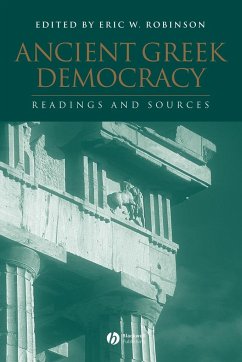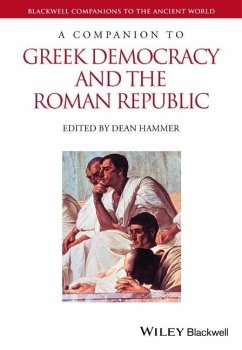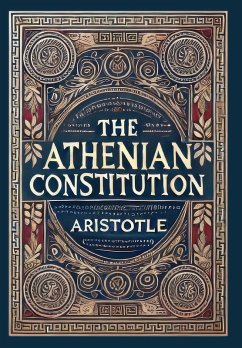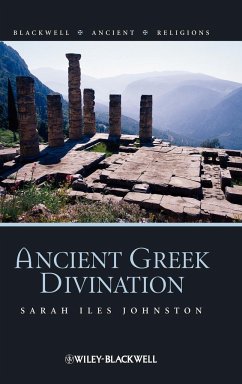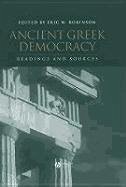
Ancient Greek Democracy
Readings and Sources
Herausgeber: Robinson, Eric W
Versandkostenfrei!
Versandfertig in über 4 Wochen
185,99 €
inkl. MwSt.
Weitere Ausgaben:

PAYBACK Punkte
93 °P sammeln!
Democracy is one of the greatest inventions of the ancient Greeks. This book invites readers to investigate the phenomenon of ancient Greek democracy for themselves, from its earliest roots in the archaic period to its appearance and development in Athens. The book is comprised of six chapters, presenting questions of continuing interest and controversy. Each one encourages readers to engage with ancient texts in translation and to see how contemporary classical scholars have gained insights from them. Each can be used as a self-contained unit to explore a particular aspect of ancient democrat...
Democracy is one of the greatest inventions of the ancient Greeks. This book invites readers to investigate the phenomenon of ancient Greek democracy for themselves, from its earliest roots in the archaic period to its appearance and development in Athens. The book is comprised of six chapters, presenting questions of continuing interest and controversy. Each one encourages readers to engage with ancient texts in translation and to see how contemporary classical scholars have gained insights from them. Each can be used as a self-contained unit to explore a particular aspect of ancient democratic government. Taken as a whole, the book provides readers with an extensive overview of ancient Greek democracy and the current state of its study. For ease of use, the book contains maps, a glossary, and an index.



